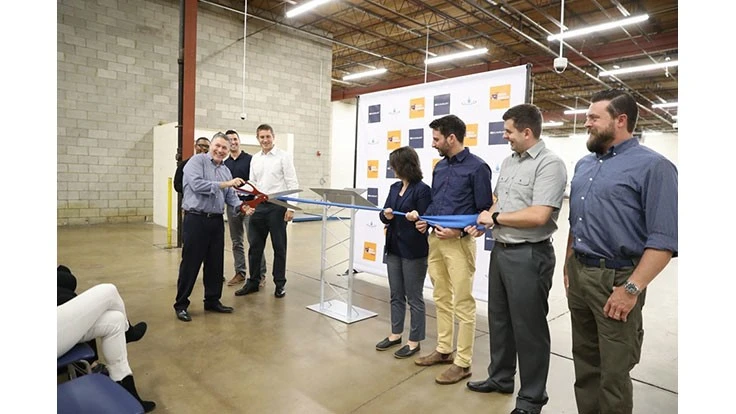
Liquid Technology.
Brooklyn, New York-based information technology asset disposition (ITAD) processor Liquid Technology has opened a new electronics scrap processing facility in Chicago. The 19,400-square-foot facility located outside of Chicago is the company’s second site.
“Opening this location will benefit Liquid Technology’s customers by offering cost savings, bolstered capacity and increased processing speed,” the company says in a news release.
In addition to Liquid Technology’s R2 certified processing facility in Brooklyn, the additional space will allow the company to “leverage more room for asset processing and faster turnaround time for customers.” The new facility has the capacity to process 10,000 IT devices per month. The expansion will also provide new job opportunities for engineers and recycling technicians in the region, the company says.
“We’re excited to be expanding and establishing our presence further in this market,” says Richard Greene, managing partner at Liquid Technology. “Our top priority is and always has been to serve as a trusted partner and deliver top-tier services to our clients and this Chicago facility makes that even easier.”
The company says Chicago is home to pharmaceutical companies and emerging technology markets.
“To strengthen best practices and meet the needs of security-focused clients, the addition of the Chicago facility offers an augmented chain of custody safety,” the company says. “As the industry moves further toward cloud-based processes and adopts emerging technologies, the amount of outdated IT assets and e-scrap is growing.”
Latest from Recycling Today
- Aqua Metals secures $1.5M loan, reports operational strides
- AF&PA urges veto of NY bill
- Aluminum Association includes recycling among 2025 policy priorities
- AISI applauds waterways spending bill
- Lux Research questions hydrogen’s transportation role
- Sonoco selling thermoformed, flexible packaging business to Toppan for $1.8B
- ReMA offers Superfund informational reports
- Hyster-Yale commits to US production





